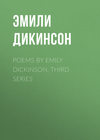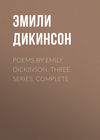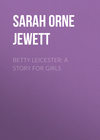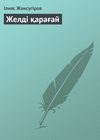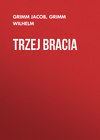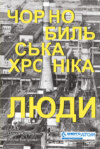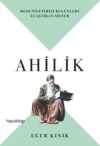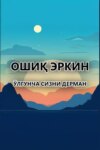Kitabı oku: «Poems by Emily Dickinson, Third Series», sayfa 4
Yazı tipi:
XVII.
WHO?
My friend must be a bird,
Because it flies!
Mortal my friend must be,
Because it dies!
Barbs has it, like a bee.
Ah, curious friend,
Thou puzzlest me!
XVIII
He touched me, so I live to know
That such a day, permitted so,
I groped upon his breast.
It was a boundless place to me,
And silenced, as the awful sea
Puts minor streams to rest.
And now, I'm different from before,
As if I breathed superior air,
Or brushed a royal gown;
My feet, too, that had wandered so,
My gypsy face transfigured now
To tenderer renown.
XIX.
DREAMS
Let me not mar that perfect dream
By an auroral stain,
But so adjust my daily night
That it will come again.
XX.
NUMEN LUMEN
I live with him, I see his face;
I go no more away
For visitor, or sundown;
Death's single privacy,
The only one forestalling mine,
And that by right that he
Presents a claim invisible,
No wedlock granted me.
I live with him, I hear his voice,
I stand alive to-day
To witness to the certainty
Of immortality
Taught me by Time, – the lower way,
Conviction every day, —
That life like this is endless,
Be judgment what it may.
XXI.
LONGING
I envy seas whereon he rides,
I envy spokes of wheels
Of chariots that him convey,
I envy speechless hills
That gaze upon his journey;
How easy all can see
What is forbidden utterly
As heaven, unto me!
I envy nests of sparrows
That dot his distant eaves,
The wealthy fly upon his pane,
The happy, happy leaves
That just abroad his window
Have summer's leave to be,
The earrings of Pizarro
Could not obtain for me.
I envy light that wakes him,
And bells that boldly ring
To tell him it is noon abroad, —
Myself his noon could bring,
Yet interdict my blossom
And abrogate my bee,
Lest noon in everlasting night
Drop Gabriel and me.
XXII.
WEDDED
A solemn thing it was, I said,
A woman white to be,
And wear, if God should count me fit,
Her hallowed mystery.
A timid thing to drop a life
Into the purple well,
Too plummetless that it come back
Eternity until.
III. NATURE
I.
NATURE'S CHANGES
The springtime's pallid landscape
Will glow like bright bouquet,
Though drifted deep in parian
The village lies to-day.
The lilacs, bending many a year,
With purple load will hang;
The bees will not forget the tune
Their old forefathers sang.
The rose will redden in the bog,
The aster on the hill
Her everlasting fashion set,
And covenant gentians frill,
Till summer folds her miracle
As women do their gown,
Or priests adjust the symbols
When sacrament is done.
II.
THE TULIP
She slept beneath a tree
Remembered but by me.
I touched her cradle mute;
She recognized the foot,
Put on her carmine suit, —
And see!
III
A light exists in spring
Not present on the year
At any other period.
When March is scarcely here
A color stands abroad
On solitary hills
That science cannot overtake,
But human nature feels.
It waits upon the lawn;
It shows the furthest tree
Upon the furthest slope we know;
It almost speaks to me.
Then, as horizons step,
Or noons report away,
Without the formula of sound,
It passes, and we stay:
A quality of loss
Affecting our content,
As trade had suddenly encroached
Upon a sacrament.
IV.
THE WAKING YEAR
A lady red upon the hill
Her annual secret keeps;
A lady white within the field
In placid lily sleeps!
The tidy breezes with their brooms
Sweep vale, and hill, and tree!
Prithee, my pretty housewives!
Who may expected be?
The neighbors do not yet suspect!
The woods exchange a smile —
Orchard, and buttercup, and bird —
In such a little while!
And yet how still the landscape stands,
How nonchalant the wood,
As if the resurrection
Were nothing very odd!
V.
TO MARCH
Dear March, come in!
How glad I am!
I looked for you before.
Put down your hat —
You must have walked —
How out of breath you are!
Dear March, how are you?
And the rest?
Did you leave Nature well?
Oh, March, come right upstairs with me,
I have so much to tell!
I got your letter, and the birds';
The maples never knew
That you were coming, – I declare,
How red their faces grew!
But, March, forgive me —
And all those hills
You left for me to hue;
There was no purple suitable,
You took it all with you.
Who knocks? That April!
Lock the door!
I will not be pursued!
He stayed away a year, to call
When I am occupied.
But trifles look so trivial
As soon as you have come,
That blame is just as dear as praise
And praise as mere as blame.
VI.
MARCH
We like March, his shoes are purple,
He is new and high;
Makes he mud for dog and peddler,
Makes he forest dry;
Knows the adder's tongue his coming,
And begets her spot.
Stands the sun so close and mighty
That our minds are hot.
News is he of all the others;
Bold it were to die
With the blue-birds buccaneering
On his British sky.
VII.
DAWN
Not knowing when the dawn will come
I open every door;
Or has it feathers like a bird,
Or billows like a shore?
VIII
A murmur in the trees to note,
Not loud enough for wind;
A star not far enough to seek,
Nor near enough to find;
A long, long yellow on the lawn,
A hubbub as of feet;
Not audible, as ours to us,
But dapperer, more sweet;
A hurrying home of little men
To houses unperceived, —
All this, and more, if I should tell,
Would never be believed.
Of robins in the trundle bed
How many I espy
Whose nightgowns could not hide the wings,
Although I heard them try!
But then I promised ne'er to tell;
How could I break my word?
So go your way and I'll go mine, —
No fear you'll miss the road.
IX
Morning is the place for dew,
Corn is made at noon,
After dinner light for flowers,
Dukes for setting sun!
X
To my quick ear the leaves conferred;
The bushes they were bells;
I could not find a privacy
From Nature's sentinels.
In cave if I presumed to hide,
The walls began to tell;
Creation seemed a mighty crack
To make me visible.
XI.
A ROSE
A sepal, petal, and a thorn
Upon a common summer's morn,
A flash of dew, a bee or two,
A breeze
A caper in the trees, —
And I'm a rose!
XII
High from the earth I heard a bird;
He trod upon the trees
As he esteemed them trifles,
And then he spied a breeze,
And situated softly
Upon a pile of wind
Which in a perturbation
Nature had left behind.
A joyous-going fellow
I gathered from his talk,
Which both of benediction
And badinage partook,
Without apparent burden,
I learned, in leafy wood
He was the faithful father
Of a dependent brood;
And this untoward transport
His remedy for care, —
A contrast to our respites.
How different we are!
XIII.
COBWEBS
The spider as an artist
Has never been employed
Though his surpassing merit
Is freely certified
By every broom and Bridget
Throughout a Christian land.
Neglected son of genius,
I take thee by the hand.
XIV.
A WELL
What mystery pervades a well!
The water lives so far,
Like neighbor from another world
Residing in a jar.
The grass does not appear afraid;
I often wonder he
Can stand so close and look so bold
At what is dread to me.
Related somehow they may be, —
The sedge stands next the sea,
Where he is floorless, yet of fear
No evidence gives he.
But nature is a stranger yet;
The ones that cite her most
Have never passed her haunted house,
Nor simplified her ghost.
To pity those that know her not
Is helped by the regret
That those who know her, know her less
The nearer her they get.
Türler ve etiketler
Yaş sınırı:
12+Litres'teki yayın tarihi:
21 temmuz 2018Hacim:
36 s. 1 illüstrasyonTelif hakkı:
Public Domain